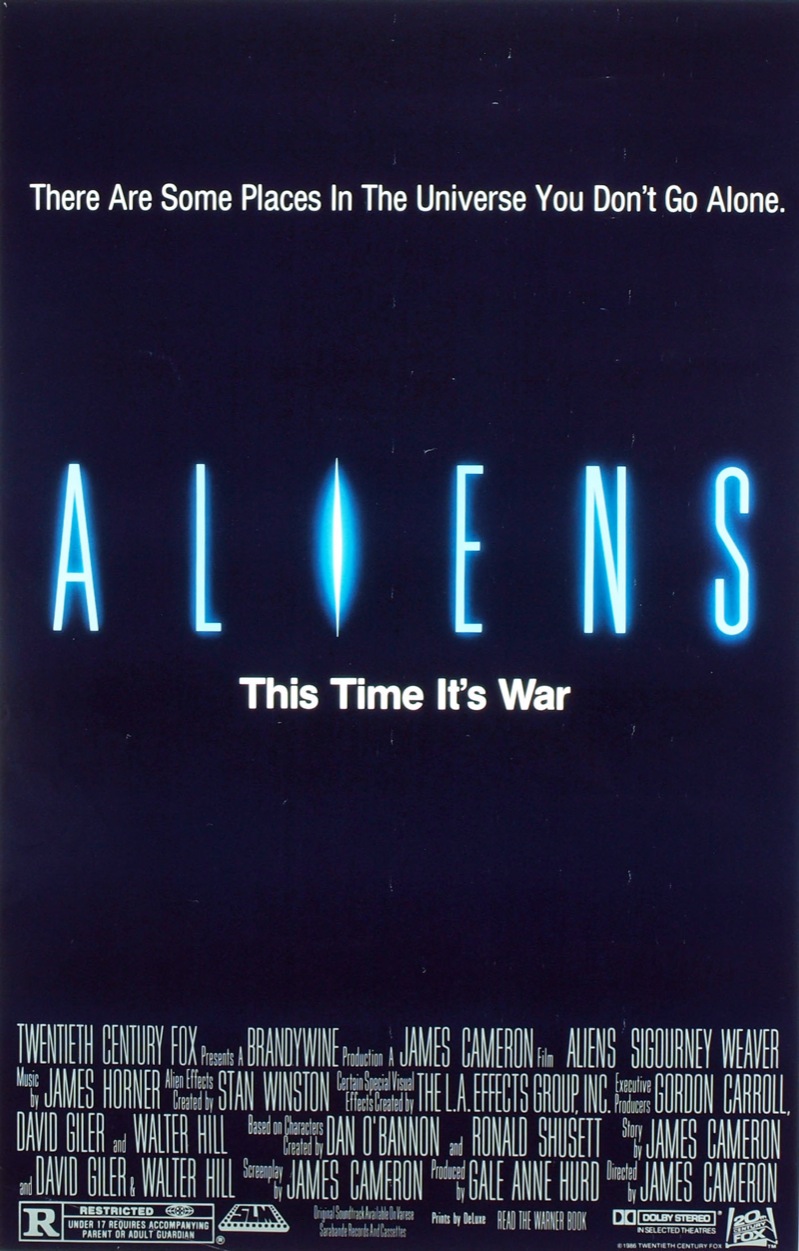
Nordling here.
If you thought that my defense of ALIEN3 in the last column of PERFECT ORGANISM meant that I preferred that movie over its predecessor ALIENS, you probably shouldn’t be reading this. I defended ALIEN3 because I genuinely think it’s a good movie, and served as a launching pad for one of the strongest visual filmmakers today, David Fincher. But ALIENS is in another league; without a doubt one of the greatest sequels of all time. There will always be a debate about which movie is better, ALIEN or ALIENS. While I’m firmly in the ALIEN camp, that doesn’t mean I have to love ALIENS any less. It just means ALIEN is that good. But its sequel, with one of the most simplistic yet on-point titles ever, joins that rare group of sequels that expands on the original in a way that opens up that whole filmic universe.
As ALIEN is a horror movie, ALIENS makes no attempts, aside from some frightening moments, to repeat the formula. This is an action-adventure movie. And we should be thankful for that. Instead of repeating story beats, ALIENS is genuinely different from Ridley Scott’s film. Quality-wise ALIEN, at least for me, outweighs ALIENS, though the sequel is still one of the most on-target movies ever made. Its hit-to-miss ratio is up around 90%, an average that puts ALIENS in very small company. I can’t claim it’s a better film than ALIEN simply because while the universe is the same, the styles are vastly different.
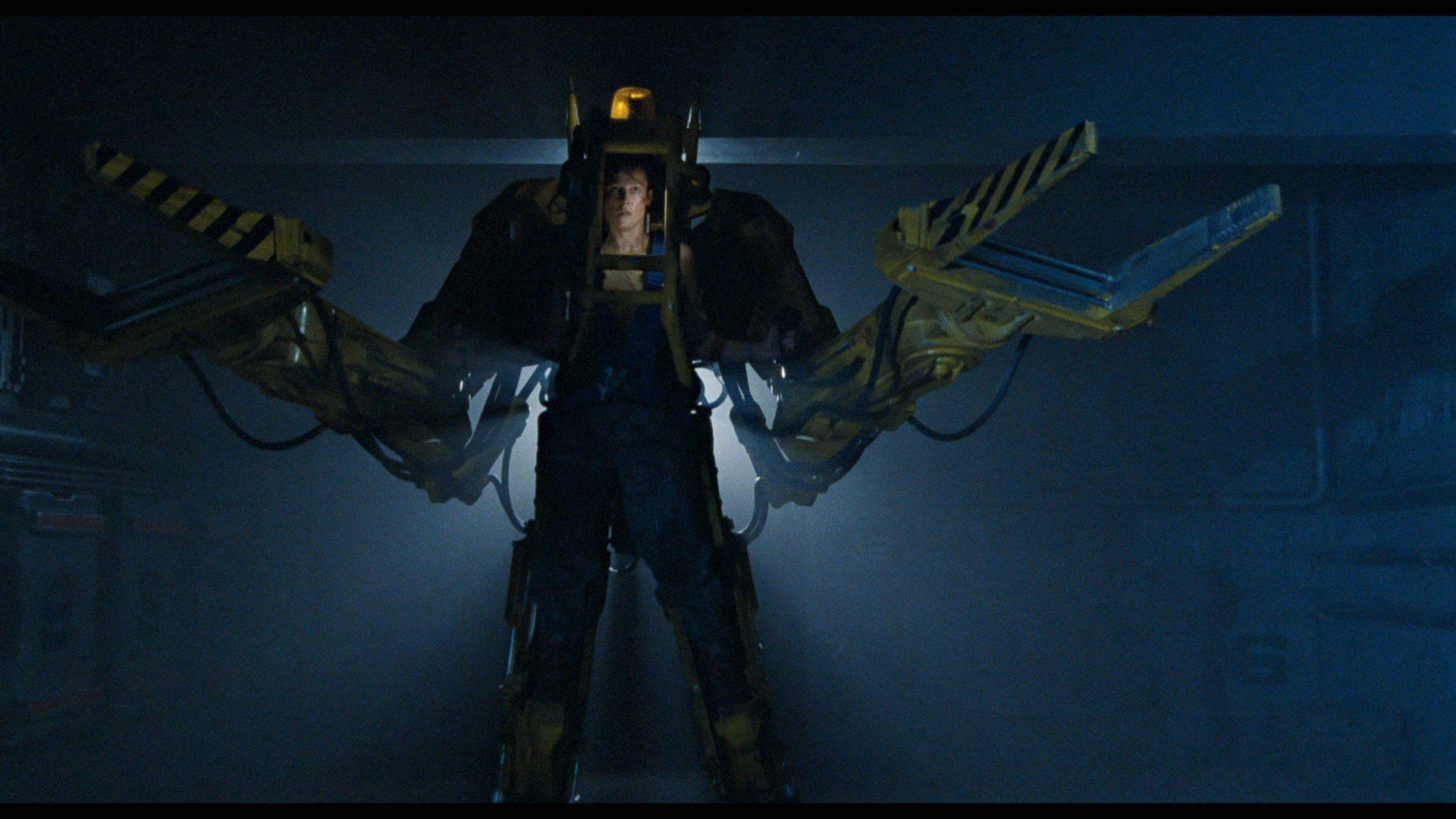
ALIENS is intense, emotional, and ultimately rewarding; ALIEN is mythic, dealing with a vast universe that isn’t necessarily hostile to humanity as it is indifferent. ALIEN is cold, clinical, and Kubrickian (with a dash of Robert Altman’s dialogue); ALIENS is more along the lines of John Ford or Howard Hawks. The characters in the original are more relatable - just blue-collar working stiffs in space as opposed to warriors and corporate suits. But ALIENS is more inviting, in a strange way. These are familiar action movie tropes we’re dealing with – a vastly outnumbered, expendable force dealing with hostiles everywhere, a woman who emotionally latches on a helpless orphan – and so ALIENS is a better fit for a lot of audiences than ALIEN.
As world-building goes, Ridley Scott set the framework with ALIEN but it could be said that James Cameron adds the meat to the bones of the ALIEN Universe. ALIENS feels even more lived-in than ALIEN if that’s possible. A greater intimacy is felt in the original ALIEN because the cast - seven crewmembers on the Nostromo space vessel - is so small, as opposed to a sequel full of space-age jarheads. With a larger cast of characters ALIENS loses some characterization, which is to be expected. James Cameron may paint some of the characters with broad strokes, but that’s not to say they aren’t memorable.
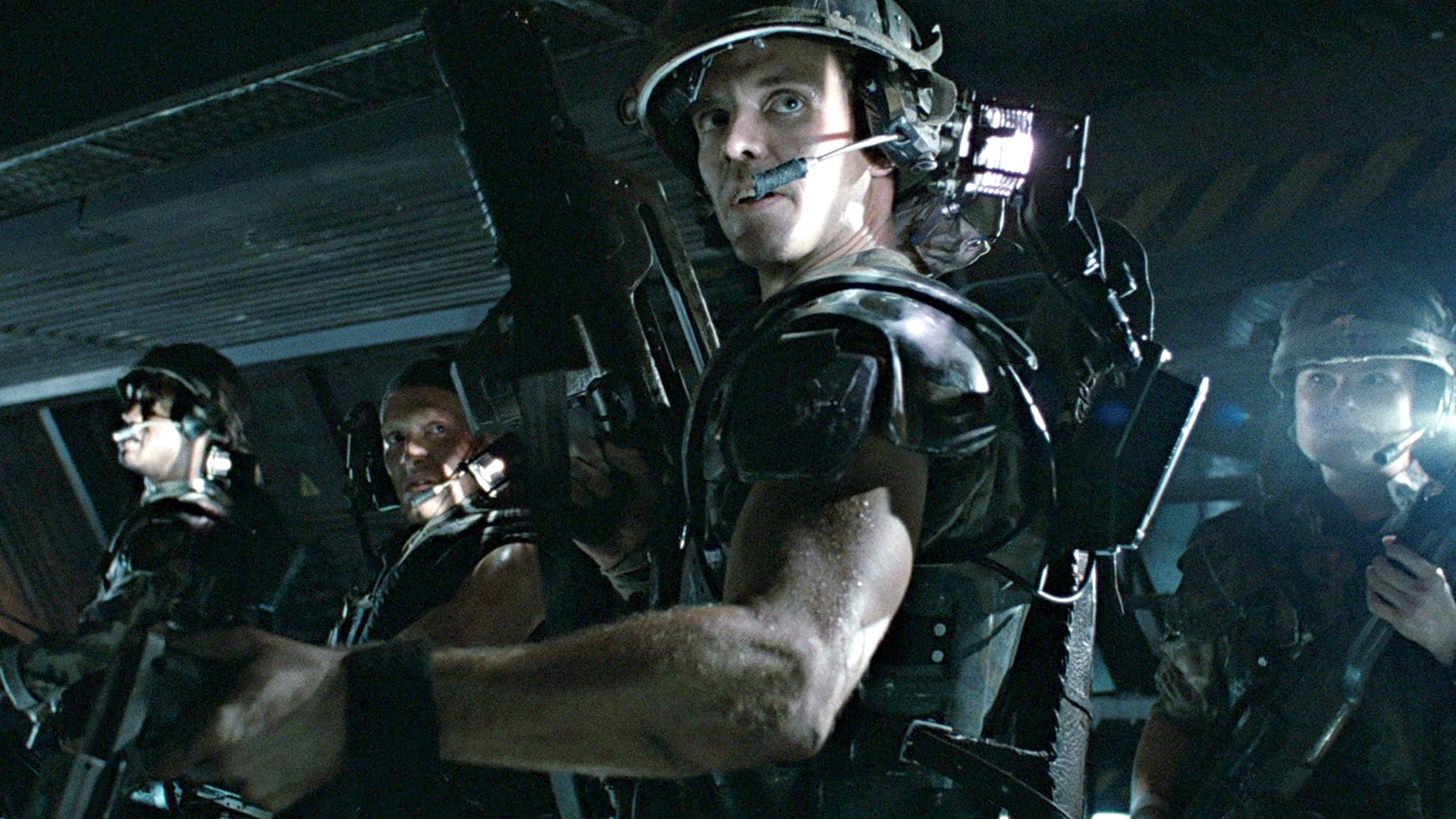
Take Michael Biehn’s Hicks, for example. When the movie starts we know very little about him – he’s just a grunt, to quote Paul Reiser’s Burke. We know that he’s been in many combat drops – enough that when the dropship goes down to LV-426 it knocks him right out like a lullaby – and that he seems to have a stabilizing effect on the rest of the Colonial Marines. He gets along with everyone and is well-liked. Biehn puts enough empathy and restraint in his performance that Hicks, when not blowing away aliens, might seem to be an all right guy to have a beer with. Fans were outraged when David Fincher ruthlessly killed him off in ALIEN3, and while I still think it was necessary to tell that movie’s story, Hicks made enough fan impact that I would have liked to have seen more adventures with that character as well. There’s a nice moment in the Director’s Cut when Ripley is on her way out to rescue Newt when they reveal to each other their first names. Even while we don’t know much about Hicks, Cameron’s writing and Biehn’s work make him feel fully realized and Hicks is a worthy addition to the ALIEN universe.
I love how Bishop (Lance Henriksen) is ambiguous to the audience at first. ALIENS counts on the audience having seen ALIEN for many of the story beats to work, and after the villainous Ash obviously Bishop isn’t fully trustworthy. We see him admiring the facehugger, calling it “magnificent,” but unlike Ash, his fascination is purely academic; he would never let anything hurt the crew if he could help it. Bishop is the quiet hero of ALIENS, and when Ripley accepts him it’s a vindication.

No, the real villain is Burke (Paul Reiser), a Company man through and through looking for exclusive rights to the aliens, and thinking nothing of killing his crewmates if it means he can collect. There are probably entire dissertations out there on the portrayal of corporations in the ALIEN Universe – from the inquest and through Burke’s actions it’s obvious that Weyland-Yutani wants nothing more than to sweep the whole thing under a rug. It’s all dirty laundry – the Nostromo, Ripley, Ash, all of it. I’d always imagined Ridley Scott or someone making a movie about corporate greed and the rise of Weyland-Yutani – it wouldn’t even have to be science fiction. In PROMETHEUS we have Weyland Industries, and I imagine the financial fiasco that ensues from the events in that film will probably force Weyland Industries to merge with Yutani at some point. The idea of corporate malfeasance extending to the point of murder may have seemed a little ridiculous in 1986, but now, it’s completely plausible.
The other characters – Hudson (Bill Paxton), Vasquez (Jenette Goldstein), and Gorman (William Hope) may seem like stock characters in a movie like this, but Cameron and the actors make them breathe. There’s a line that Vasquez says to Gorman – “You always were an asshole, Gorman.” – that paints a picture in my fan-fictiony mind. From that line alone I’ve concocted a backstory between the two, about how they knew each other during training, but Gorman passed her up somehow, either because he was a man or that he was on the fast track to becoming an officer, and it was just coincidence that they wound up on this mission together. As I said, very fan-fictiony but that’s to Cameron’s credit that he wrote these characters to have a life outside of the movie. They aren’t as nuanced or as detailed as the characters in Ridley Scott’s film, but in ALIEN the actors had little choice but to build on what they were given. Even characters like Drake (Mark Rolston), Apone (Al Matthews), Spunkmeyer (Daniel Kash), or Frost (Ricco Ross) make an impression, and they aren't just fodder. I would never claim that ALIENS has better characterizations than ALIEN but I do think that Cameron thought about these people quite a bit, possibly even more than Scott thought about his characters in ALIEN.
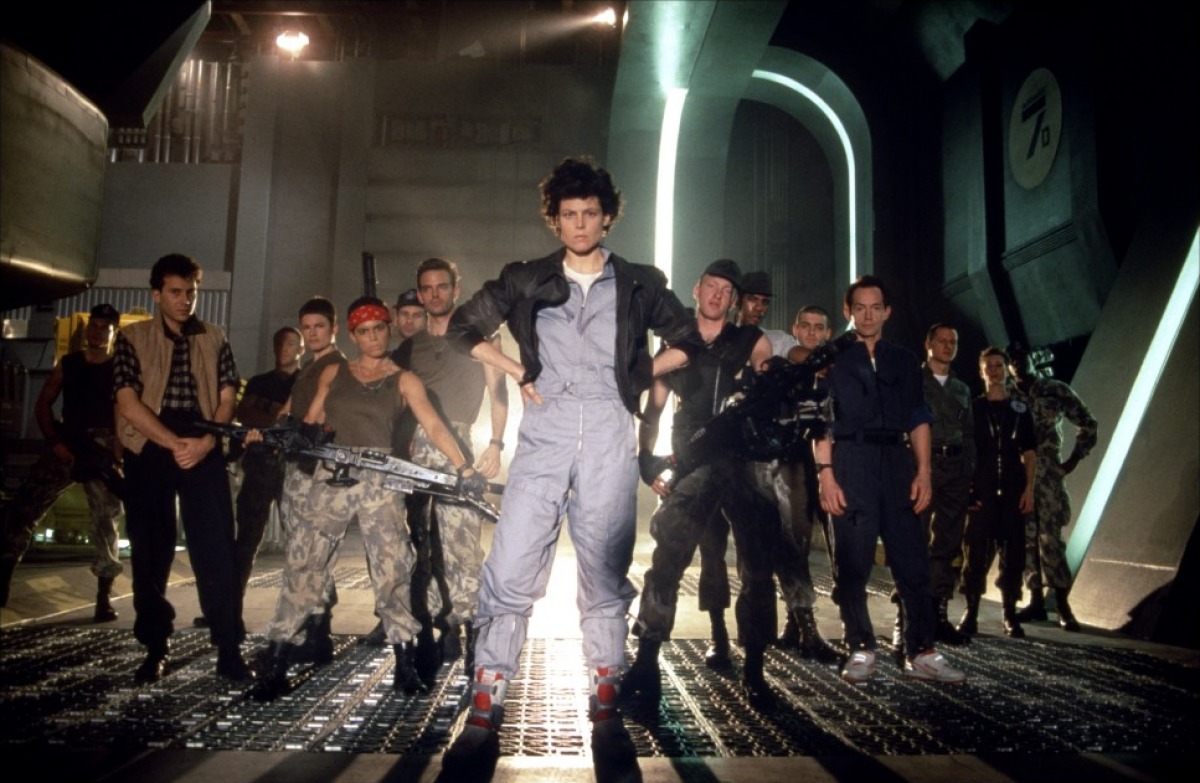
As far as Sigourney Weaver’s work in ALIENS, it’s a stellar performance - one of the greatest, man or woman, in the science fiction genre. Weaver was nominated for an Oscar for Best Actress (and lost to Marlee Matlin from CHILDREN OF A LESSER GOD) and much deservedly so. How many young women actresses were inspired by Weaver’s work here? I’d imagine an awful lot. To steal a Cameron phrase, Ripley’s characterization was in a way a “game-changing” moment in how females were portrayed in action-oriented roles. It also served as a metaphor for the female empowerment movement of the ‘80s. Think of the strong female characters that came along after Ripley. Joss Whedon’s Buffy Summers, Katniss Everdeen in THE HUNGER GAMES, even James Cameron’s Sarah Connor saw a complete metamorphosis in between THE TERMINATOR and JUDGMENT DAY.
I think my favorite acting moment in the entire series is Ripley armoring herself up in the elevator, silently, on her way down to Sub Level 3 to save Newt (Carrie Henn) from the aliens. She faces her fears, fears that have been driving her throughout the movie, becoming something she’s never been before, and when those doors open she is ready for everything. You have to remember that at the time of ALIENS’ release, action movies were full of heroes armed to the teeth, a Stallone or a Schwarzenegger shooting everything that moved with little emotion and remorse. Ripley isn’t “Rambolina” like many reviewers at the time had claimed. Her actions mattered, and Weaver makes the impending violence count. Ripley is fighting for what she has lost, her life, and the life of Newt, and it is far from meaningless.
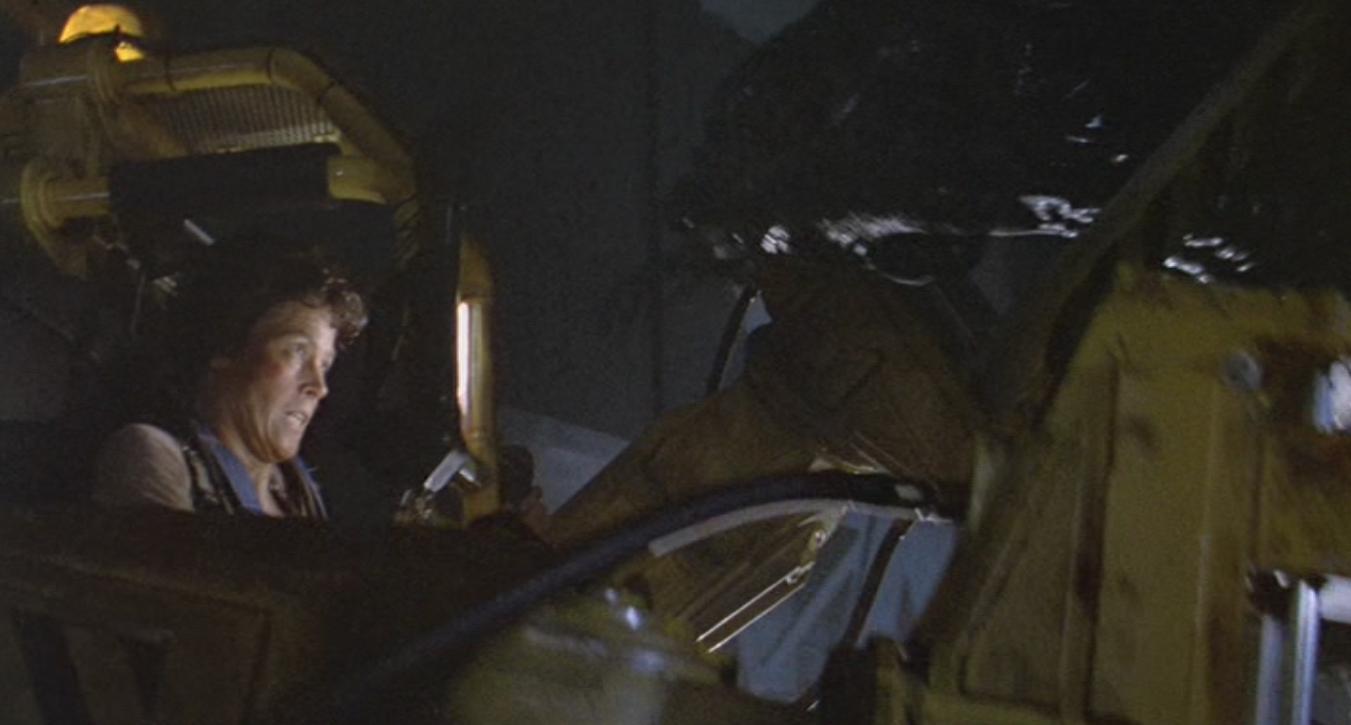
Stan Winston’s work on ALIENS is revelatory. Although I prefer the elegant design of the original alien in the first film, the fact that Winston and his team created these suits to be as functional as they are and still remain terrifying is a huge credit to their work. Through the cleverness of editing and Adrian Biddle’s impressive cinematography, this army of six guys in suits becomes many more, and Ray Lovejoy’s fantastic editing work keeps everything flowing well. Even when the movie stops to take a breath, we still feel this sense of impending doom on the characters, and Cameron constantly ramps up the tension - I can still hear the beeping from the motion detector - so that in that last 45 minutes, it’s almost unbearable. At times ALIENS really feels like the intensity of combat.
James Cameron’s biggest contribution to the ALIEN Universe is probably his creation of the Alien Queen, a design so successful that H. R. Giger himself afterwards approved of his work. The Queen is that missing link in the life cycle of the Xenomorph, one hinted at in the first film (with the incubating of Dallas and Brett in Ridley Scott’s Director’s Cut), but it makes an interesting contrast with Ripley as well. The Queen makes sense thematically – as Ripley fights for the survival of her surrogate child, the Alien Queen fights for the survival of her race. The one drawback to how the aliens are portrayed in ALIENS is that while in the first film the alien seems almost indestructible, one of Lovecraft’s Elder Gods brought to terrifying life, in ALIENS they are simply cannon fodder. Dangerous cannon fodder to be sure – these aliens are still deadly creatures, but they don’t approach the mythic quality that Scott gave to the creature in the first movie. It’s a necessary evil in regards to the story, but it still needs to be noted.
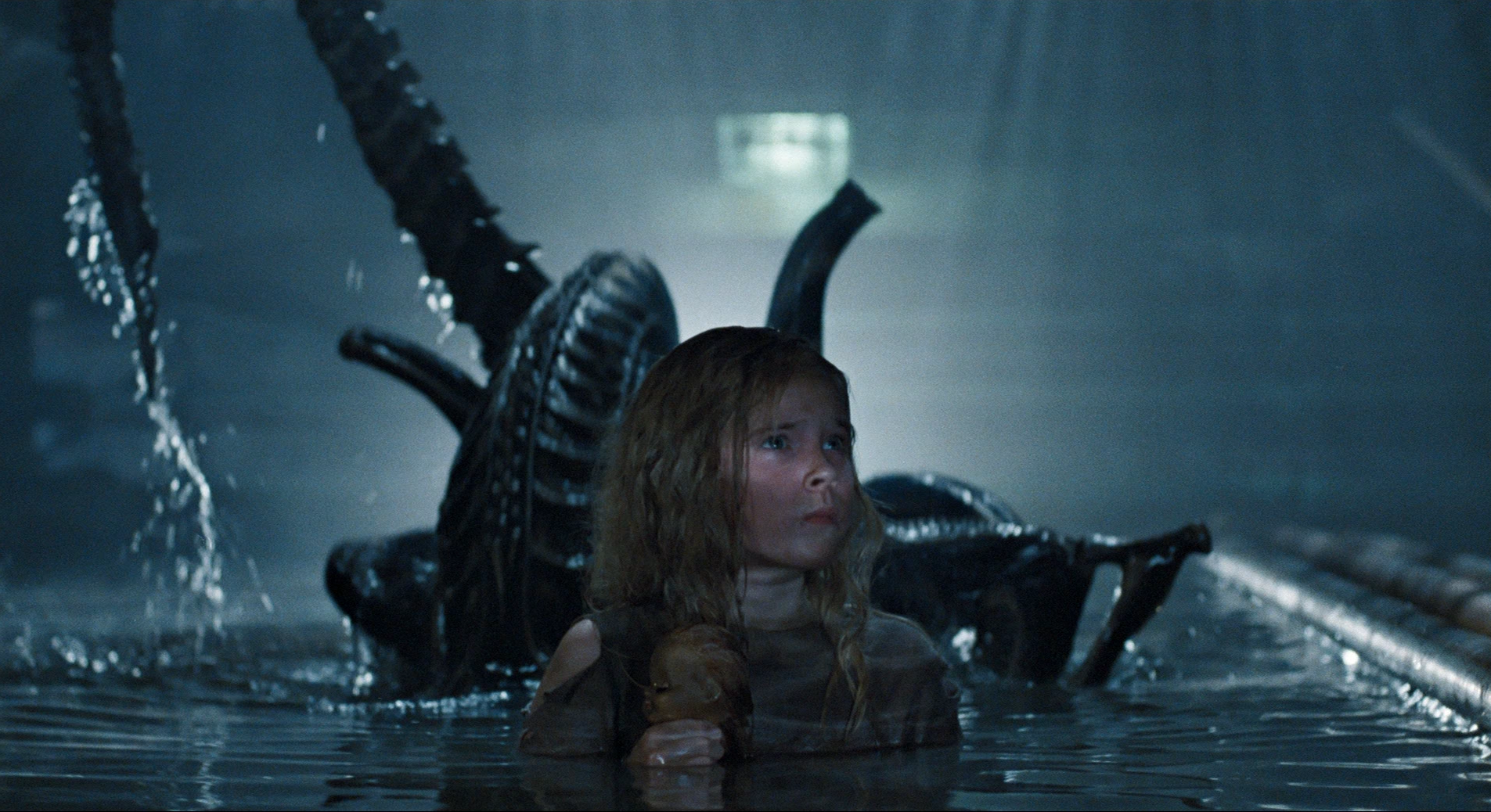
My preferred cut is the Director’s Cut, even though it impedes the flow of the movie quite a bit, especially in the buildup to the first encounter with the aliens. I still think the sequence with Ripley learning of her daughter’s death is a little too on-the-nose for me; I don’t think we need that little extra background in Ripley’s life to understand her empathy and love for Newt. But I love the sequence with Newt’s parents sticking their faces in places they shouldn’t, and I love the sentry guns sequences, showing the Colonial Marines’ situation becoming more desperate by the hour.
An interesting plot hole was pointed out to me just last night, and I feel like a schmuck for not thinking about it sooner: Why wasn’t there any human crew left on the Sulaco? At least two people who could have navigated the second dropship back to the colony in case things went badly for the Marines. I can only assume that there wasn’t because the ship was fully automated and it would have been redundant, and that Weyland-Yutani and the Marines figured this on being a milk run, but it is a problem with the story. Having said that, I never really caught that before now, and it’s a credit to the movie’s power that I didn’t. It just never occurred to me before now, because the movie is so effective in enveloping you that things like that don’t seem to register. Unlike PROMETHEUS, where the plot holes seem obvious in retrospect, ALIENS’ plot holes don’t seem to make much of a difference, and that’s due to nature of the script and the relentless pacing of the movie.
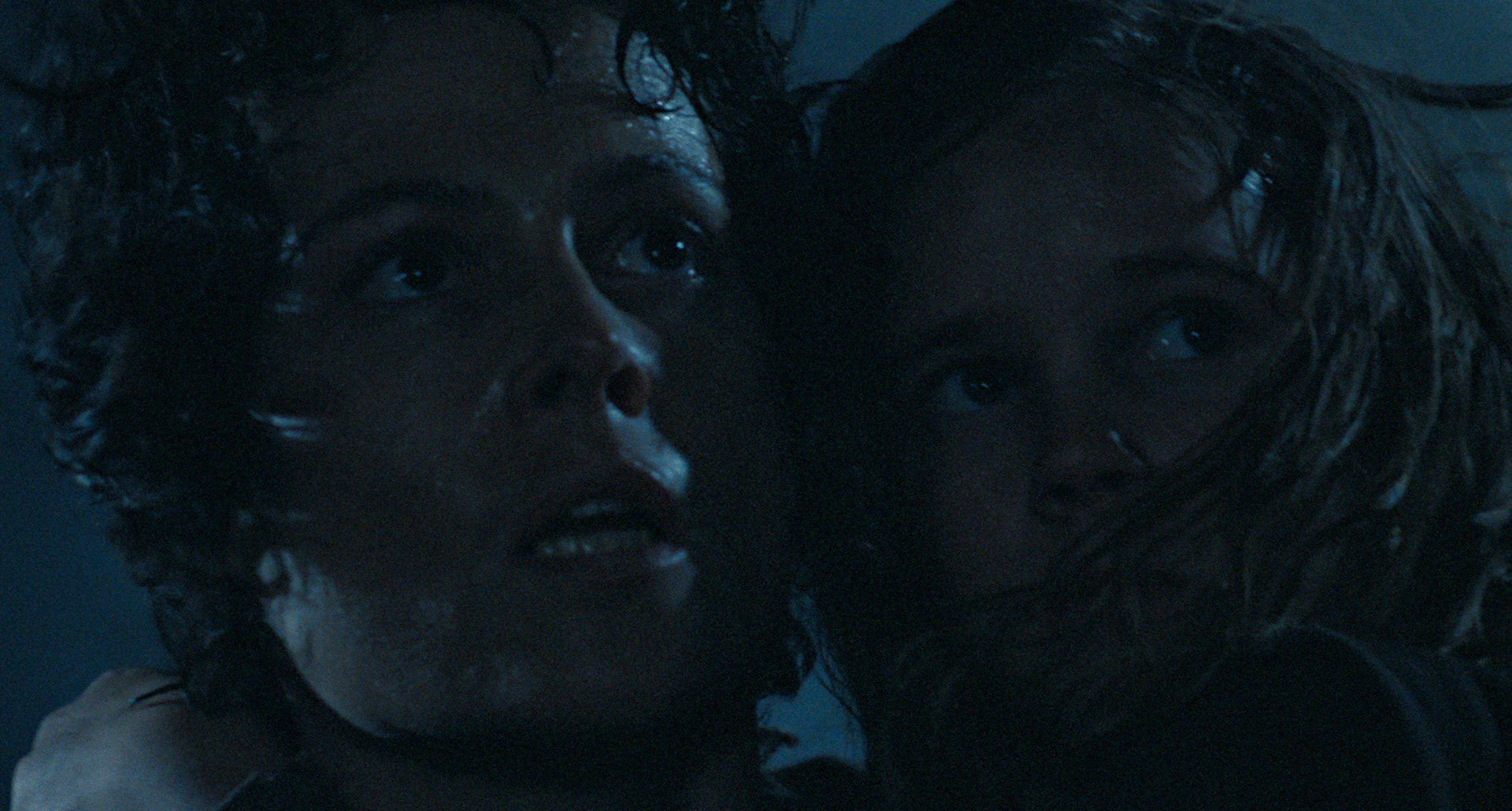
ALIENS is that happy moment in a director’s career where his ambitions don’t quite meet the abilities of the film crew. (After all, this was only James Cameron’s second major film release, following THE TERMINATOR and disavowing PIRANHA II: THE SPAWNING.) Why is that a happy moment? Because when that happens it forces the director to act creatively. The biggest problem with the STAR WARS Prequels is simply this – what George Lucas wanted, he got. As an artist, that might seem incredibly liberating – to create entire worlds out of nothing, and to not be told no as your mind takes off in flight. But for movies, it simply doesn’t work that way. The best movies come out of being tested, out of thinking around corners and figuring out how to make things work. Without any limitations, without anyone to tell you no, without some sort of restraint or outside input, the artist has no idea whether or not their vision even makes sense. Great art can happen through compromise and collaboration, and no medium proves that better than film.
What does this have to do with ALIENS? Simple – James Cameron had a strict vision of where he wanted the sequel to go. He created the story, and even went so far as to help design the ships and weapons, but when it came to the execution it was the limitations that Cameron had to think his way around. Having sown his cinematic oats working for Roger Corman - a master at doing more with less - that helped him spawn his creativity to make ALIENS the great movie that it is today. Make no mistake, ALIENS is James Cameron’s movie, from idea to final edit, but while THE TERMINATOR was guerilla filmmaking at its finest, with ALIENS Cameron had to deal with the studio, with prop makers, artists, actors, producers, budget – it was through that collaboration that ALIENS found its singular voice.
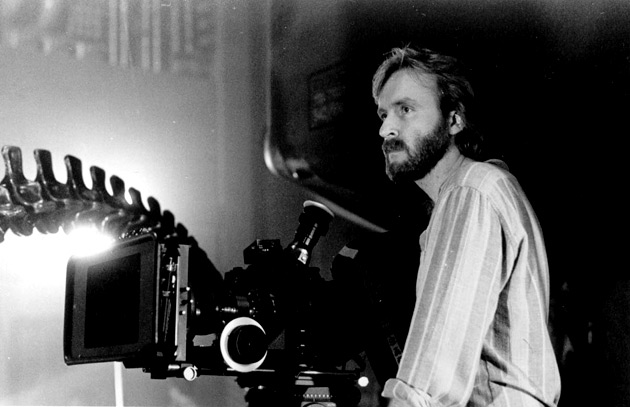
Now James Cameron can call all the shots, much like George Lucas, but he would do well to remember that setting up limitations for yourself as a filmmaker can be just as beneficial to the end product as an unfettered vision unlimited by budget or technology. The experience may be frustrating, but the passion shows on the screen, more so than a simple green-screen backdrop or creature rendering. You can feel the effort in every frame of ALIENS, as Cameron and company constantly bump into what the technology of the time allowed. ALIENS is a scrappy, efficient, locomotive of a movie because of that. It’s a lesson that’s more important than ever in genre filmmaking these days. The passion is much more evident, and audiences pick up on it. James Cameron will always be a passionate filmmaker, no doubt, and he remains a great one. It’s filmmakers like him, and Peter Jackson, and Steven Spielberg, and Ridley Scott, who oversee their films and don’t rely overly on CGI to realize their vision, but instead get down there and get their hands dirty. They make their worlds real as a result, and that is what every film aspires to – building better worlds, indeed.
Nordling, out. Follow me on Twitter!
Additional editing by Travis Leamons. You can read his work at Inside Pulse.
Read my other PERFECT ORGANISM Columns:
